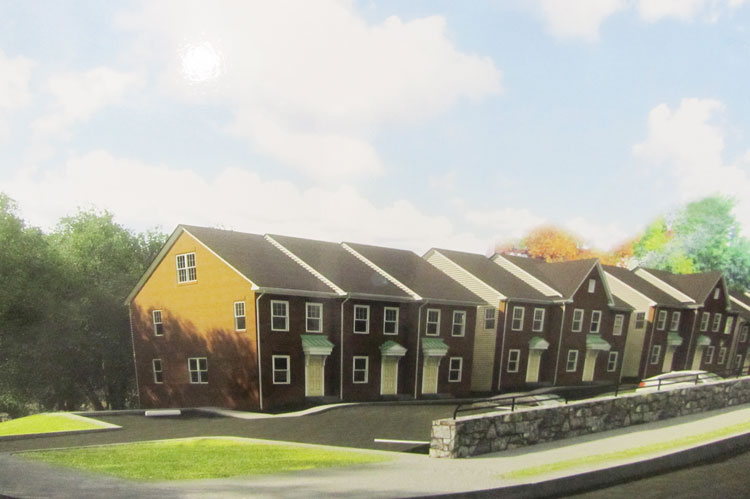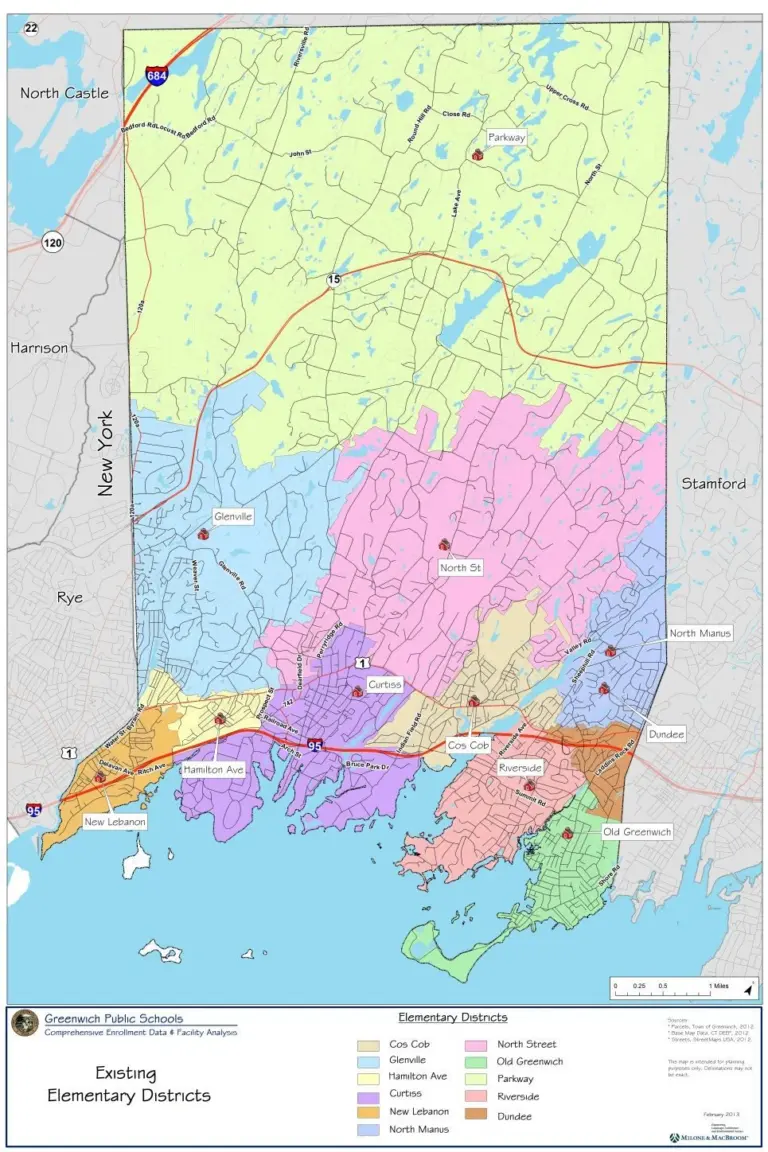
By Bill Slocum
Contributing Editor
A formal plan to build 18 townhouses at Armstrong Court, the first phase of a wholesale makeover of the Hamilton Avenue housing project, could be before the Planning and Zoning Commission as early as this month.
Anthony Johnson, executive director of the Greenwich Housing Authority, which owns the 144-unit complex, says the townhouses offer an opportunity for rehabbing and enlarging the existing apartments by creating a starting place for relocating residents while existing units are gutted and renovated.
Johnson said he is optimistic about the plan’s prospects, especially after receiving support last month from Eversource, which bought $500,000 in tax credits connected to the new construction three days before Christmas, and from the state Department of Housing, which has given the Authority a pre-development loan of $300,000.
“It’s one step,” Johnson said. “When you build affordable housing, there are many layers involved. But this is real.”
The phased project, if completed as planned, would result in a new look for the complex, built in 1951. The townhouses, with their peaked roofs and gables, are meant to be a sharp break from the more utilitarian look and feel associated with public housing in general, and with Armstrong Court in particular, which has flat roofs and an aesthetic design suggestive of concrete bunkers.
Sam Romeo, president of the Housing Authority’s Board of Commissioners, talked up plans for granite countertops, refurbished floors, and new fixtures in bathrooms and kitchens. “It’s a standard of living people associate with this community, and one our residents deserve,” Romeo said.
At present, Johnson said many units have but a single bathroom, a situation he describes as not in line with family-housing expectations today: “A family of six having one bathroom, that’s a problem.”
If all six existing buildings are remodeled as planned, the end result will be six fewer units, as six one-bedroom, one-bathroom units on site will be converted into larger family units with two bathrooms apiece. But Johnson noted the new townhouses will increase the total number of units on site, making Armstrong Court the local leader in public-housing with 156 moderate-income-assisted units.
One key change will be the transformation of concrete porches that make up much of the existing façade at Armstrong Court into interior space. Johnson said the porches represent an “antiquated style” as well as a $65,000 annual cost in lost energy and heating. “The concrete catwalks are heat sinks and an energy drain,” said Johnson.
Johnson added the residents of Armstrong Court are in favor of the remodeling plan, with the Residents’ Council an active player in the review process. Some residents may have to move more than once. Johnson emphasized the Authority would coordinate with residents to minimize the inconvenience and expense involved.
“No one is dislocated,” Johnson said. Single-occupancy residents who find themselves out a unit would be relocated to Agnes Morley Heights complex if needed, he added.
For the moment, much depends on the fate of the townhouses, the all-or-nothing first step in the process. The plan for building the townhouses must be reviewed both by the Planning and Zoning Commission, which gave preliminary approval to the townhouses last year, and the Planning and Zoning Board of Appeals, which will review the altered roof height.
Both Romeo and Johnson claim that concerns raised at the zoning commission meeting about site contamination have been satisfactorily addressed, and express confidence about the plan going forward.
“This is about bringing the Housing Authority into the 21st century,” Romeo said. “It’s a big win for everybody.”
This first phase, construction of the townhouses, is estimated at $6.3 million, with the rest of the rehabilitation project cost as of yet unknown.
The townhouses represent a new era for the Housing Authority in another way, as the buildings will be modular units, constructed at a factory offsite, from the floors to the doors to the piping. “All you do is lay it down, hook it up, and do whatever finish work is needed,” Johnson said.
The Housing Authority did build modular units before, six units at Hollow Wood Lane in Pemberwick, but those were sold off. This is one of two modular projects being built at the moment on Authority property, the other being 11 units at Adams Gardens in Riverside.
Johnson said if all goes according to plan, construction of the Armstrong Court townhouses could begin this fall.




